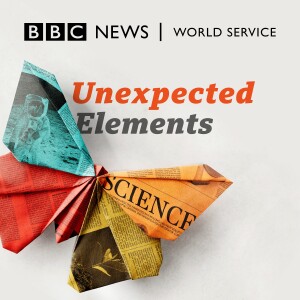
n December 2020, China's Chang'e-5 mission returned to earth carrying rock samples collected from the moon – the first lunar samples to be collected since the American Apollo and Luna missions to the moon in the 1970s.
Laboratory analysis has revealed that these are the youngest samples of rocks to be collected from the moon. Lunar geologist Katherine Joy explains what this tells us about the moon’s volcanic past. Also on the programme, a recent study reveals that the hepatitis B virus has been infecting humans for at least 10,000 years.
Denise Kühnert from the Max Planck Institute for the Science of Human History shares what the evolution of the virus tells us about human evolution, as well as the rise and fall of civilisations. In the wake of Cyclone Shaheen, we also speak to Princeton University’s Ning Lin about how climate modelling can help us predict tropical storms in the Arabian Sea, and Fredi Otto joins us to discuss the 2021 Nobel Prizes for Science.
Snails are a major enemy of gardeners around the world, invading vegetable patches and gobbling prize plants. CrowdScience listener Alexandre reckons he’s removed thousands of them from his garden, which got him wondering: apart from eating his garden to the core, what’s their wider role in nature? Would anyone or anything miss them if they suddenly disappeared?
And for that matter, what about other creatures? We all know how complex biodiversity is, but it seems that some animals are more important than others in maintaining the balance of life on earth. Is there anything that could go extinct without having knock-on effects?
CrowdScience heads to the Hawaiian mountains, a snail diversity hotspot, to discover the deep value of snails to native ecosystems there. Researchers and conservationists are working together to protect these highly endangered snails, and their natural habitats, from multiple threats.
We hear why all snails – even the ones munching Alexandre’s petunias – have their role to play in the natural world, and get to grips with cascading extinctions: how the loss of a single species can trigger unpredictable effects on a whole ecosystem.
(Image: Getty Images)
view more
More Episodes
Body scan reveals HIV's hideouts
 2022-06-11
2022-06-11
 2022-06-11
2022-06-11
Heat death by volcano and other stories
 2022-05-29
2022-05-29
 2022-05-29
2022-05-29
Death in the rainforest
 2022-05-21
2022-05-21
 2022-05-21
2022-05-21
Tsunami detective in Tonga
 2022-04-10
2022-04-10
 2022-04-10
2022-04-10
Radioactive Red Forest
 2022-04-03
2022-04-03
 2022-04-03
2022-04-03
Covid in the sewers
 2022-03-20
2022-03-20
 2022-03-20
2022-03-20
Why are Covid19 cases rising in Hong Kong?
 2022-03-13
2022-03-13
 2022-03-13
2022-03-13
Covid -19 origins
 2022-03-06
2022-03-06
 2022-03-06
2022-03-06
Reforming the 'China Initiative'
 2022-02-27
2022-02-27
 2022-02-27
2022-02-27
Bone repair from Covid-19 vaccine technology
 2022-02-20
2022-02-20
 2022-02-20
2022-02-20
Inside Wuhan's coronavirus lab
 2022-02-13
2022-02-13
 2022-02-13
2022-02-13
Identifying a more infectious HIV variant
 2022-02-06
2022-02-06
 2022-02-06
2022-02-06
The roots of Long Covid
 2022-01-30
2022-01-30
 2022-01-30
2022-01-30
Tonga eruption – how it happened
 2022-01-23
2022-01-23
 2022-01-23
2022-01-23
012345678910111213141516171819
Create your
podcast in
minutes
- Full-featured podcast site
- Unlimited storage and bandwidth
- Comprehensive podcast stats
- Distribute to Apple Podcasts, Spotify, and more
- Make money with your podcast
It is Free
- Privacy Policy
- Cookie Policy
- Terms of Use
- Consent Preferences
- Copyright © 2015-2024 Podbean.com



